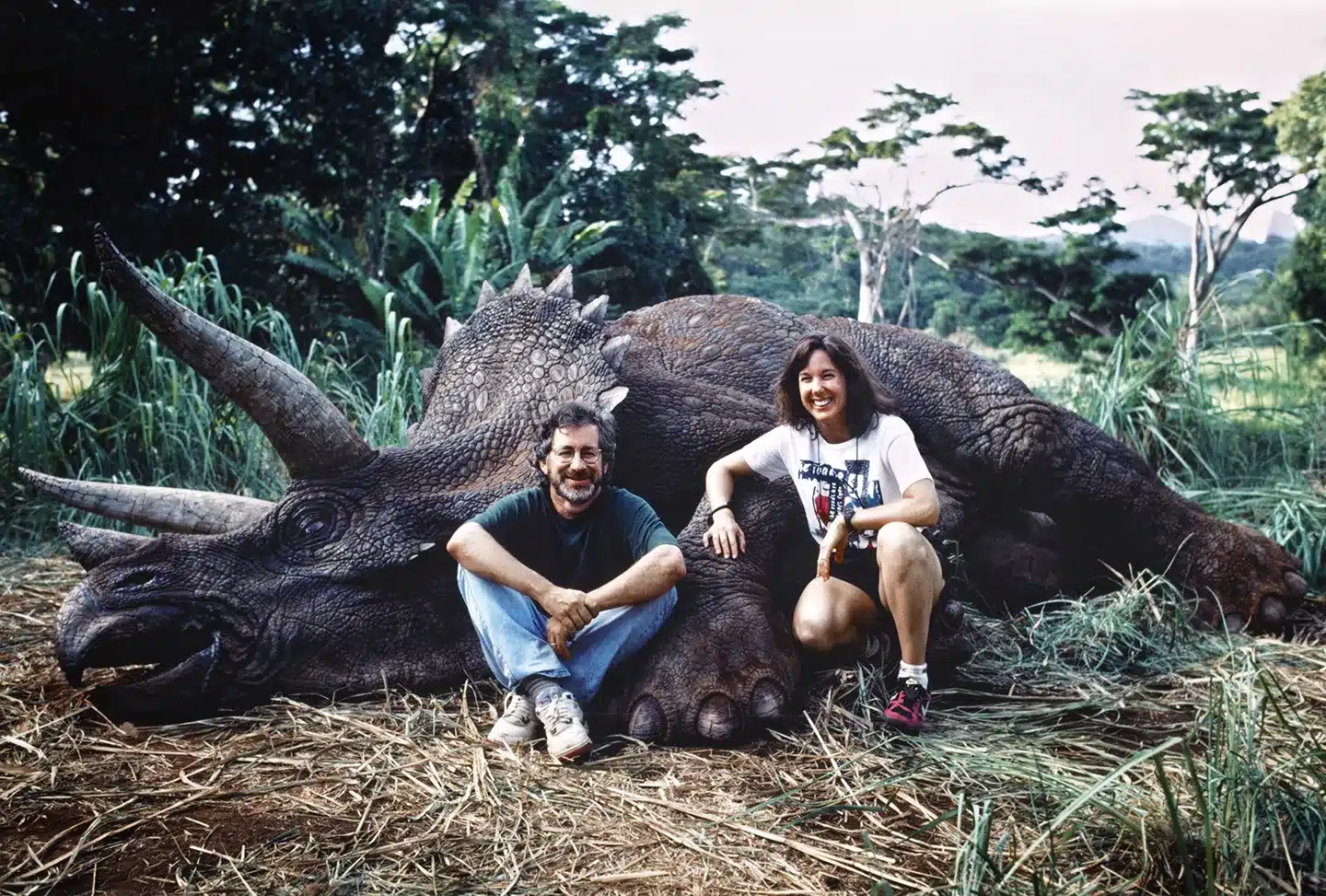
What is the Difference Between an Executive Producer and a Producer?
It seems like a simple question, but for anyone hoping to get involved in filmmaking and even those already in film production, it is important to understand the differences between an Executive Producer and a Producer.
That can be hard considering not only the vast number of producer credits on any given movie but also the growing list of the types of producers, from associate to executive and everything in between.
Having a producer, or more likely multiple producers, is necessary for successful film production, but not all producers are created equal. Knowing the distinction can be the difference between a project making it up on the big screen and collecting awards to being put up on a shelf to collect dust.
A Producer is responsible for managing all aspects of a project, encompassing production, budgeting, staffing, and more. In contrast, an Executive Producer typically focuses on one or two specific domains, such as casting or scriptwriting, while potentially remaining uninvolved in other areas like location scouting or post-production.
For the rest of this article we will take a closer look at the key differences between an executive producer and a producer so that you have the best shot at getting your project from script to screen.

Executive Producer vs Producer – 8 Key Differences:
- Status in Production Hierarchy
- Responsibility
- Creative Control
- Securing Financing and Allocating Budget
- Involvement Throughout Production
- Award Eligibility
- How they Receive Compensation
- Business Sense and Knowledge of the Film Industry
1. Status in Production Hierarchy
The executive producer sits at the top of the production totem pole. Since they provide and/or manage the funding for a film project (either directly or indirectly), they inherently hold a great deal of influence over a film.
On any film project, an executive producer can be thought of as the CEO of that production. This is even more pronounced in cases where a production company produces a film, as the CEO of that production company is considered the executive producer of the film (often one of several others).
In most cases, the producer is either hired by an executive producer or seeks out an EP to acquire film funding, meaning the producer role often falls just beneath the executive producer in seniority.
That said, their position in the production pyramid is nothing to scoff at, with everyone on production either directly or indirectly reporting to the producer for every production decision. Nothing happens on a project unless the producer gives the go-ahead.
2. Responsibility of an Executive Producer vs. Producer
The executive producer may be higher on the totem pole, but they don’t have nearly the amount of responsibility that the producer does. While an executive producer is integral in some stage of production, the producer is integral in all phases of production and works with all departments from beginning to end.
The producer is the glue that holds a film production together, working in close association with the director, cast, and crew on a daily basis. Executive producers are typically more hands-off through the production process. Some EPs may only be responsible for a small aspect of production and only for a short period.
An executive producer’s primary contacts are the studio or production company above them and the producer below them. Conversely, the film’s producer is responsible for numerous facets of a project lasting the entire duration of a film’s production cycle.
A producer is responsible for keeping continuous, precise contact with all the departments below them in addition to communicating with the executive producer above them.
For example, Steven Spielberg, often credited as an executive producer, has overseen blockbusters like Jurassic Park, demonstrating how executive producers focus on big-picture financing and creative direction. Meanwhile, Kathleen Kennedy serves as the producer responsible for the day-to-day execution of these projects.

3. Creative Control
Because the producer is more involved on set with the cast and crew, they also have greater control when it comes to creative aspects of filmmaking. While the executive producer or studio holds final say and veto power, the producer is the one most involved in hiring a director and other heads of various creative departments (costuming, set design, etc.)
The producer handles on-set logistics, management, and supervision while the executive producer deals more with off-set issues like negotiating contracts, communicating with investors or studios, and maintaining the business face of production.
That’s not to say that an executive producer has no creative impact. An EP does have creative influence over the project in the big-picture, however, it is the producer who has greater control over the film’s nuanced creative characteristics and distinctive style.
In some scenarios, an executive producer takes little or no part in the creative process. An EP may simply find a script or idea they think is both exceptional and profitable, then secure funding in order to hire a producer. Similarly, a producer who is already working with a writer may approach an executive producer simply looking to fund a project they’ve already created.
Ready to take charge of your film production?
Celtx offers tools for budgeting, scheduling, and creative collaboration to help producers manage every step of production.
Start your free trial today!
4. Securing Financing and Allocating Budget
Executive producers are the ones most involved in a film’s financing, either directly or indirectly. Securing financing is generally considered an executive producer’s number one priority. However, because there can be multiple executive producers on a single production, their level of involvement varies from person to person.
In many instances, to receive credit as an executive producer is as simple as attaching a name to a project to lend legitimacy and attract investors. If a major name is associated with a project, investors will feel more confident that the venture is going to prove profitable; likewise, they will invest more readily.
In other instances, an executive producer may be as directly involved as putting up their own cold, hard cash to fund a production.

Financially a producer is concerned mostly with creating a budget that can be presented to an executive producer. It is then the job of the executive producer to either approve or reject the budget based on the financing they are able to acquire.
Once the budget is approved, the producer’s role is to manage the funds assembled by executive producers. The producer makes hiring decisions, allocates funds to various departments and crew members, and determines where money is best disbursed.
Simply put: Executive producers provide the money; producers spend it.
5. Involvement Throughout Production
Executive producers rarely visit a film’s set as they work in a more advisory capacity. An executive producer may be working as an EP on several projects at once meaning their attention is required on multiple projects. A film’s primary producer likely only has the time and capacity to commit to a single production.
Furthermore, the producer is always available on set to supervise the creative and technical aspects of the film. They are deeply involved in every step of a film’s production from conception to completion. Though an executive producer may hire or oversee the hiring of certain positions, the producer is the one who will be working and collaborating with those crew members in person throughout production.
6. Award Eligibility
Because a producer is more involved in the actual filmmaking process, they are the one eligible to receive awards – Oscars and Golden Globes are the two most prestigious – while the executive producer is not. This is also because organizations such as The Academy and various guilds have strict limits and criteria for who is eligible to receive credit as the film’s primary producer.

7. How They Receive Compensation
Producers are paid a salary by the executive producer or production company, whereas the executive producer earns a cut of the profit earned by the movie. The executive producer holds the largest interest in how well a movie does at the box office. Because they’re the one who has the most upfront investment, they are also the one who stands to gain the most from a project that does well.
Related Celtx Article: How to Write a Movie Script | A Comprehensive Guide
8. Business Sense and Knowledge of the Film Industry
Executive Producers have to be keen networkers and shrewd businesspeople. To be successful they have to sometimes let their economic and market insight override their creative decision-making. Knowing how to produce a film that makes money can be just as important as knowing how to produce a film that garners critical acclaim.
A film’s producer can be less concerned with making money or the business marketing of a film and more dedicated to the practical making of a great film. Though a savvy producer will also be acutely aware of and tapped into their creative film network so that they can make a great film that also falls within a reasonable budget.
Practical Steps to Break Into Producing or Executive Producing
Now that you know the key differences between a producer and an executive producer, you might be wondering—what’s next?
Whether you’re drawn to the hands-on, day-to-day responsibilities of a producer or the big-picture, strategic role of an executive producer, the path to either career starts with preparation, networking, and gaining experience.
Here are some actionable steps to help you take the first step toward making your mark in the film industry.
For Aspiring Producers:
- Start Small with Short Films – Gain experience managing small productions to build your reputation and network. Software/sites like Celtx can help you organize your script and pre-production planning effectively.
- Build Relationships with Directors and Writers – Producers thrive on collaboration. Attend film festivals, join online forums, and network at local film events to connect with creative talent.
- Learn Budgeting Tools – Producers need to create and manage budgets effectively. Using tools like Celtx’s budgeting software can give you a head start in tracking expenses and allocating resources.
For Aspiring Executive Producers:
- Invest in Independent Films – Start as an associate or co-executive producer by financially backing smaller indie films. Platforms like Seed&Spark or Kickstarter offer opportunities to support and fund emerging projects.
- Develop Industry Knowledge – Follow trade publications like The Hollywood Reporter and Variety to stay on top of trends and potential opportunities.
- Leverage Business Connections – Executive producers often have backgrounds in finance or marketing. Use those skills to pitch projects to investors and secure funding.
Conclusion
So what does this mean for you? Are you missing a producer role from your production team?
For those interested, Nashville Film Institute has an exhaustive list of every producer title and what each entails so you can figure out what roles may be missing and fit your team with just the right piece.
If you’re looking to get involved as a producer, know that there is a mountain of responsibility that comes with that title. You will need to sharpen your leadership skills and familiarize yourself with all aspects of film production.
If you’re interested in becoming an executive producer for a project, be prepared to either locate or put up a bundle of money. Make the right connections with writers, directors, and producers, then be prepared to let go of the reins and allow them to make the phenomenal project you hired them for.
If you’re a writer or director, do everything you can to find a hard-working, dedicated producer who believes in your project as much as you do and is as excited about your project as you are.

Enjoyed this article? Try these next!
- Clash of the Titans: Executive Producer vs. Producer
- Beyond the Set: Exploring Different Jobs in the Film Industry
- Film Budgeting: Tips for Every Production Scale

